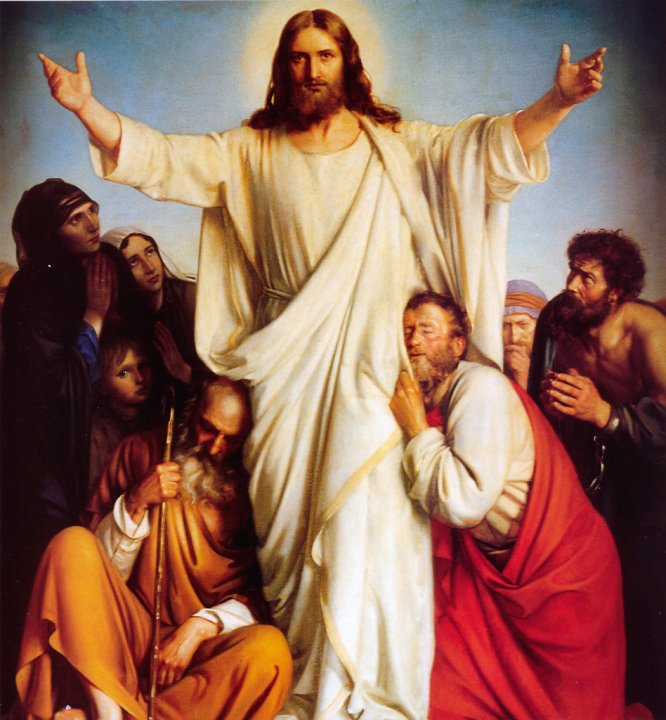Fourth Sunday in Ordinary Time-B
I
Reading: Deuteronomy 18:15-20: I will raise up a prophet and I will put my
words into his mouth.
II
Reading: 1 Corinthians 7:32-35: An unmarried woman can devote herself to the
Lord’s affairs: all she needs to worry about is being holy.
Gospel: Mark 1:21-28: He taught them with authority.
Jesus’ Teaching and Its Impact: Launching a New Ministry (1:21-22)
Jesus
is launching a new ministry in the very beginning with his authority which is prophetic,
authoritative and creative like God in Genesis very important for the believer
as he goes forth serving his Lord.
1. Jesus began with worship:
Immediately-in the Synagogue (v.21)
2. Jesus seized the opportunity to teach
(v.21)
3. Jesus amazed the crowd (v.22)
a.
His
teaching (v.14-15)
b.
His
authority
Jesus’ Power over Evil Spirits and Its Impact:
Delivering the Most Enslaved (1:23-28)
People
can be delivered from all the forces of evil by the power of Jesus and by his
creative and authoritative words. Jesus has the power to deliver man (Rom 8:31;
1Jn 4:4; Mt 8:28-34; 17:14-21; Lk 8:26-39)
1. Picture 1: The need of the possessed
man (v.23-24)
a.
He
was in the synagogue: nobody helped him or cured him
b.
He
raged and cried out, sensed and recoiled from purity
c.
He
identified Jesus: The Son of God, the Holy One of God- this is only professing
faith or lips service concession but not
practising faith
2. Picture 2: The Power of Jesus
(v.25-26)
Who
is the agent or the author of the evil spirit or who created the evil spirit?
The
misuse of the freedom, knowledge, wisdom and disobedience to the command of God
and the will of God. The first parents disobeyed God’s command and misused human freedom, knowledge and wisdom, as a result, sin and death came into the
world, whereas the Blessed Mother Mary, Joseph and Jesus obeyed God’s will or
plan with humility and obedience and brought eternal life and salvation to the
humankind. The disobedient angels were also thrown down from heaven.
Jesus
rebuked the evil spirit: because of Satan’s influence, leading, cheating,
tempting, and deceiving the man to take away from God and to influence him to
disobey the commandments of God or will of God like Adam and Eve in Genesis
deceived by the serpent. Now the seed (Jesus) is crushing the head of evil
spirit and its power over man.
Moses
talked about this real Prophet Jesus the Messiah and the Son of God, the
Saviour who would lead the people of God in the first reading of today. That is
what John the Baptist said, “I am not a prophet, Elijah and Christ. But one who
comes after me He is the Christ the Messiah.” Thus we need to listen to the
voice of Jesus and obey his teaching and commands of loving God and loving
neighbours.
Paul
is urging us to live a holy life for God rather than living according to our own will
or plan or wish but to live according to God’s will and plan which can bring
victory over evil spirits.
How can we love Jesus and obey or
listen to his command today?
By four ways:
i.
Prayer
ii.
Reading
the Word of God and practice them in life
iii.
Sacrament
of Reconciliation for conversion or repentance from sin
iv.
The
Eucharist and doing good works in life for others and for God.
a.
The
evil spirit obeyed
3. Picture 3: The impact upon people
(v.27-28)
a.
The
people were amazed
b.
The
people questioned: What power, what new revelation (teaching) is this?
c.
The
people spread his fame
Thought:
knowing that Jesus is the Holy One of God is not enough. A person has to
believe in the power of Jesus Christ and love him and live a clean and pure
heart.
One of the
major purposes of Jesus in confronting evil spirits was to prove his
Messiahship (Mt 8:28-34). He is the Messiah, Son of God and the Promised One
the Saviour of the world.
